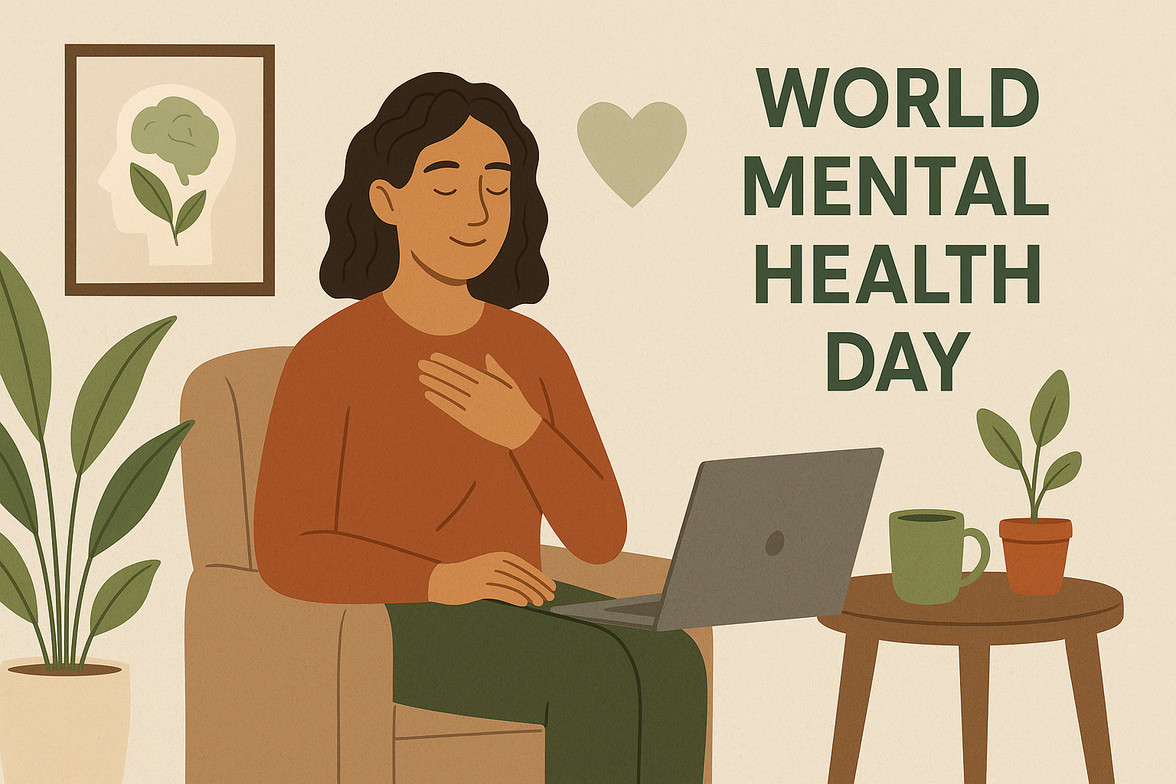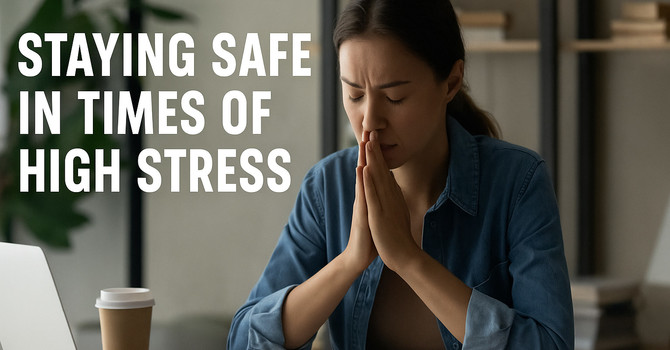
What is World Mental Health Day?
Every year on October 10th, people around the world come together to recognize World Mental Health Day. It is a day to raise awareness about mental health issues, fight the stigma that still surrounds mental illness, and encourage people to seek help when they need it. Mental health affects everyone, no matter where you live, your age, or your background.
Protecting Your Mental Health
Taking care of your mental health is just as important as caring for your physical health. Here are some simple ways you can protect your mental well-being:
-
Talk About Your Feelings: Sharing your thoughts with someone you trust can help you process emotions and feel supported.
-
Stay Active: Exercise isn’t just good for your body; it’s a powerful tool for improving your mood.
-
Eat Well: A balanced diet helps your body and your mind.
-
Sleep Enough: Lack of sleep can increase feelings of anxiety and depression.
-
Take Breaks: Don’t be afraid to take short breaks to rest your mind throughout the day.
-
Ask for Help: If you’re feeling overwhelmed, reach out to a professional or a support line.
Fighting the Stigma
Mental health issues are often misunderstood, which can lead to shame and silence. You can help change this by:
-
Using Respectful Language: Avoid calling someone "crazy" or "weak" because they are struggling.
-
Listening Without Judgment: Sometimes people need someone to hear them.
-
Educating Yourself and Others: Share Accurate Information About Mental Health.
-
Supporting Mental Health Policies: Encourage workplaces, schools, and governments to develop policies that prioritize mental health protection.
Signs to Watch For in Your Family
Being aware of the early signs of mental health challenges can help you support the people you care about. Watch for:
-
Big changes in sleeping or eating habits
-
Withdrawal from friends and activities
-
Mood swings, sadness, or irritability that lasts for weeks
-
Loss of interest in things they used to enjoy
-
Problems concentrating
-
Talking about feeling hopeless or worthless
-
Expressing thoughts about harming themselves or others
If you notice any of these signs, please speak with the person and encourage them to seek help.
Disclaimer: If you or someone you know is experiencing a mental health crisis, it’s important to reach out to professional services immediately. Contact your local mental health support services for help.
Mental Health Support Numbers Across Canada:
| Province/Territory | Mental Health Support Contact |
|---|---|
| Alberta | 1-877-303-2642 |
| British Columbia | 310-6789 (no area code needed) |
| Manitoba | 1-888-617-7715 |
| New Brunswick | 1-833-552-5589 |
| Newfoundland & Labrador | 811 |
| Northwest Territories | 1-800-661-0844 |
| Nova Scotia | 1-888-429-8167 |
| Nunavut | 1-800-265-3333 |
| Ontario | 1-866-531-2600 |
| Prince Edward Island | 1-833-553-6983 |
| Quebec | 1-866-277-3553 |
| Saskatchewan | 811 |
| Yukon | 1-844-533-3030 |
Remember: Mental health is just as important as physical health. Speaking up, showing kindness, and reaching out for help when needed are all acts of strength. Together, we can build a world where mental health is valued, supported, and protected for everyone.
Jace Miles
Contact Me


